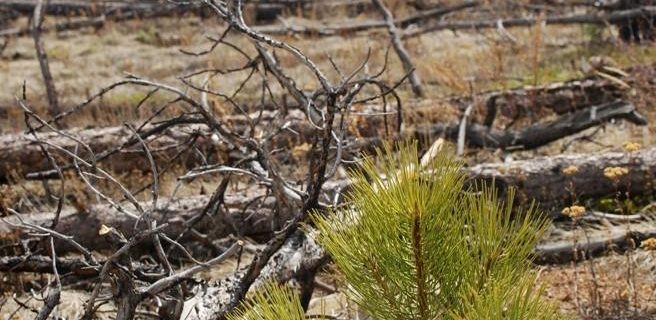December 16, 2015: Impacts of Thinning and Burning in Spotted Owl Habitat
Presenter: Quentin Hays, Eastern New Mexico University On forested lands throughout the Southwest, Mexican spotted owls (Strix occidentalis lucida) are a driver of management activities, as the current Recovery Plan (USFWS 2012) dictates forest treatment guidelines in designated owl habitat. These guidelines often prove restrictive for forest management and restoration programs, which serve to promote resiliency and …
Read more “December 16, 2015: Impacts of Thinning and Burning in Spotted Owl Habitat”

